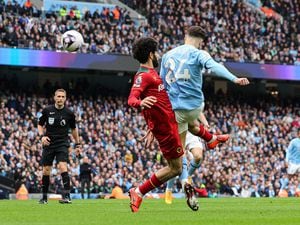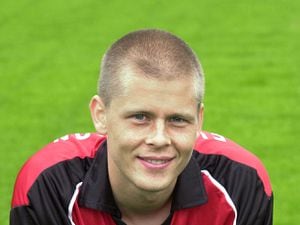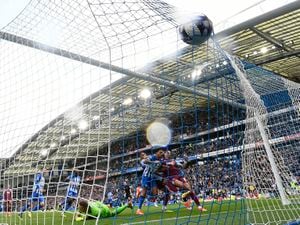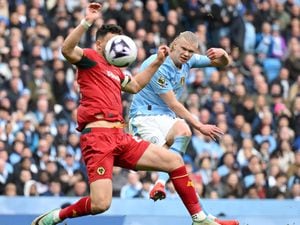The Big Interview: Mum’s the word, but Jo Pavey just keeps on running
The secret is out, whether Jo Pavey likes it or not.
For all that she would rather have kept things under wraps, her latest bid to alter perceptions on how age affects ability is now very much public.
Next year Pavey will attempt to match Tessa Sanderson’s record by becoming just the second British track and field athlete to compete in six Olympic games.
She will be 46 years old.
“I’m not the type to shout about it,” says Pavey. “It really only came out because I did a few interviews and people were asking me about my plans.
“Ideally I would have liked to have been a bit more secretive about it but I decided to be honest. I don’t want people to think I am complacent, or that it is going to be easy. I am already 45 years old.
“But I feel like it is something which could be done. There are loads of young girls coming through but it is always good to try and you never know until you try. You have to enjoy the challenge.”
The odds might be against her but it would be a brave person who bets against Pavey.
After all, she has already competed at more Olympics than any other British track athlete and in 2014, at the age of 40, became the sport’s oldest-ever European champion when she won the 10,000 metre gold.
That success earned her the medal which had until then proved elusive during a long and dedicated career, though it doesn’t bother Pavey that she is, in her own words: “Famous for being old.”
Instead, she has rather made the most of it, with a 2016 book, This Mum Runs, proving a surprise hit.
For Pavey, running is now very much a family affair. She is coached by her husband, Gavin, and regularly takes her children, nine-year-old Jacob and five-year-old Emily, out on training exercises near their Exeter home.
“I love the fact I can run in the forest or along the canal with my kids on their bikes,” she says. “I am lucky being a distance runner it is easier to fit it in around family life.
“It’s been nice to chat to people who have busy lives like I have and have to juggle running with motherhood. I have been flattered to talk about the experiences I’ve had.
“It’s strange in a way because when I was younger and going to training camps all over the world, all I would do is train, rest and refuel. I didn’t have any other responsibilities.
“It wasn’t until I became a mum and had two children that I finally achieved what I’d been trying to achieve, which was win gold at the European Championships. Having that balance in my life, juggling things, training hard but not stressing about it actually did me a lot of good mentally and physically. I’m pleased I have been able to enjoy my career more when I have been busy. I have enjoyed it a lot more. I only ever wanted to continue if I could also be the mum I wanted to be. I actually found I had a lot of fun by keeping active with a family.”
For Pavey, the peaks have come late. Yet in truth they would likely have come earlier, had she always been competing on a level playing field. In 2017, she finally received her first world medal – a decade after the race took place.
Having narrowly missed out on bronze at the 2007 championships in Osaka, Pavey was elevated into the top three after retrospective tests revealed Turkey’s Elvan Abeylegesse had been doping.
Pavey eventually received her medal at the London Games in front of her family but admits the whole experience was “bittersweet”.
She explained: “I missed that moment on the podium in Osaka. I still remember lying on the track having given everything I had got. The conditions for that race were awful, 38 degrees. It is the only race I have ever competed in where you couldn’t warm up it was so hot.
“It was insane, like a run to the death. I gave it my all. It wasn’t like I was trailing in fourth. I only just missed out on a medal on the line. It was all those years of frustration.
“When I heard Abeylegesse had been caught my first reaction wasn’t shock that someone had been cheating. It was more the shock something had been done about it, 10 years later.
“The sport has given me so many amazing experiences and I don’t want to sound negative but, for example, in 2006, I was fourth in the Europeans and all three who finished ahead of me have since been banned. This is not a sob story about me. But there have been other championships where people have since been banned and I would have been in medal positions. Even when I won gold in 2014 the bronze medallist got disqualified for using EPO. That moment could have been taken too.”
Pavey does not speak with bitterness, though her frustration could not be clearer. It is not just the experiences that have been denied but financial opportunities too, the course of a career altered by cheats.
“I missed out on things which could have helped me at certain points of my career, getting things like sponsorship,” she says.
“At the time when I was having a lot of fourth and fifth-placed finishes, it was all about trying to avoid failure the next year.
“You felt like you were letting your friends and family down. You get yourself into the best shape you can and then you are facing the media afterwards, making excuses but knowing what you are really thinking. It’s a taboo subject. I remember some athlete tried to talk about it and they got criticised for accusing someone else of cheating. When I was in my prime it wasn’t something you were able to suggest. It would sound like sour grapes.
“But you had your suspicions. You knew it was happening but you had no proof. It was just so obvious.
“There is still a lot of work to do. You do see performances even now which, without pointing fingers, you feel are questionable.
“At least things are still being done. They are re-analysing samples, you just wish they could be kept longer. Some of the races in my prime were more than 10 years ago so it is unlikely those samples would get done, which is frustrating.”
That frustration and those lingering concerns won’t put her off aiming for a sixth Olympics.
The first target is to try to achieve the qualifying time at 10,000m this year,.
“I think you always want to be the best you can be, that’s what keeps me going,” she said. “As I’ve got older I have enjoyed all the banter, my team-mates calling me granny! I just enjoy trying to see what I can still achieve. It’s just a bit of fun, really. It’s fun to see what I can still achieve.”





